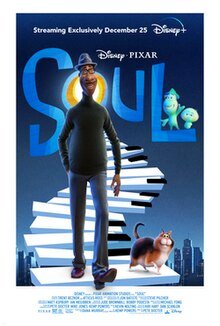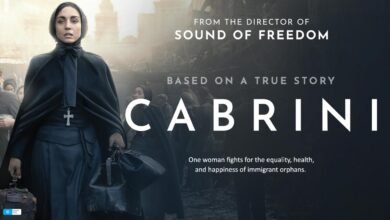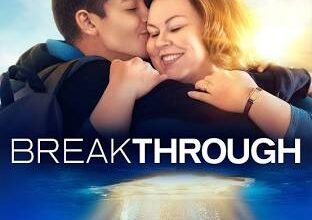Comprehensive Review of Soul (2020) From a Family Strengthening, Securing a Friendly and Protective Environment for Children®, and Rights-Based Parenting® Perspective

Disney-Pixar’s Soul (2020), directed by Pete Docter, is a profoundly moving and thought-provoking film that explores life’s purpose, passion, and what makes life worth living. The film, while not directly focused on children’s issues, contains numerous elements that can be analyzed through the lens of Family Strengthening, Securing A Friendly and Protective Environment for Children, and Rights-Based Parenting®.
Overview of the Film
Soul follows the story of Joe Gardner, a middle-aged middle school band teacher who dreams of becoming a professional jazz musician. Just when Joe’s dream is about to come true, he dies unexpectedly and enters the Great Before, a realm where souls receive their personalities before being sent to Earth. Joe’s journey through the afterlife and his mentorship of 22, an unborn soul, lead him to realize that life is about more than just achieving goals—it’s about experiencing and appreciating the simple joys of everyday living.
1. Family Strengthening Perspective
Soul offers a subtle but impactful message on family dynamics and relationships, specifically in terms of parental expectations, aspirations, and nurturing children’s individuality.
- Parent-Child Relationship and Support: Joe’s relationship with his mother, Libba, is central to the storyline. Libba, who runs a tailor shop, represents the protective parent figure who is more focused on practicalities and safety for her child. She wants Joe to secure a stable job as a music teacher, seeing it as more realistic than his dream of becoming a jazz musician. This is a common parental concern in many families—balancing the desire to protect children with their dreams and aspirations. The film portrays the importance of open dialogue, as Joe eventually shares his true passion with his mother, and she comes to understand his drive. The film encourages parents to listen and understand their children’s dreams rather than impose their own expectations on them. It highlights the need for mutual respect and open communication between parents and children to foster strong, supportive family relationships.
- Mentorship and Guidance: Joe’s mentorship of 22, the unborn soul, mirrors the role of an adult guiding a child in finding their path. Though 22 initially rejects Earth and lacks motivation, Joe gradually helps her see the beauty of life through simple experiences like eating pizza or walking through a park. This mentor-mentee dynamic emphasizes the role of positive adult influence in shaping a child’s outlook on life and nurturing their development.
2. Securing a Friendly and Protective Environment for Children®
The film doesn’t directly address issues of child protection in a conventional sense, but it metaphorically touches on several themes that can be linked to creating a nurturing environment for children.
- Fostering Emotional Safety: One of the underlying messages of Soul is that personal worth is not solely defined by achievements. This is an important message for children growing up in environments that are increasingly focused on success and measurable outcomes. The pressure to “be somebody” can harm a child’s emotional well-being if they feel their inherent worth is tied to their accomplishments. Soul emphasizes the need to create environments where children feel valued for who they are, not just for what they can achieve. It highlights the importance of allowing children the space to explore, make mistakes, and experience life without constant pressure.
- Encouraging Play and Exploration: Joe’s journey with 22 reminds us that life is not just about big milestones but also about enjoying small, everyday moments. This notion aligns with the idea that children need to experience free play, exploration, and unstructured time to develop fully. The film promotes the concept of nurturing creativity and exploration in children, allowing them to grow in an environment that supports their emotional, social, and cognitive development. A “friendly” environment is one where children are encouraged to engage with the world around them and find joy in the simple things, just as 22 learns to do.
3. Rights-Based Parenting® Perspective
Soul subtly addresses the principles of Rights-Based Parenting®, which emphasizes the child’s right to individuality, self-expression, and the pursuit of personal happiness.
- Respecting a Child’s Right to Choose Their Own Path: Throughout the film, Joe grapples with his own life choices, ultimately realizing that life isn’t about following a predestined path but about enjoying the journey. This realization can be applied to parenting in a rights-based framework, where parents respect their children’s right to autonomy and self-determination. Joe’s mother, initially concerned about his career choice, serves as an example of how parents can shift from controlling to supportive roles. Soul encourages parents to respect their child’s individual path and recognize that every child has their own unique “spark” or purpose in life. It aligns with the principle that children have the right to self-expression and the freedom to follow their passions.
- The Right to Emotional Support and Understanding: Joe’s experience as a mentor to 22 also reflects the importance of emotional guidance in parenting. 22’s reluctance to engage with life stems from fear, self-doubt, and a lack of understanding about her own potential. Joe’s role in helping 22 navigate these feelings illustrates the importance of parents offering emotional support and helping children process complex emotions. Parents are reminded to offer emotional nurturing and support as part of their child’s development. This means recognizing a child’s fears and insecurities and helping them gain confidence in themselves.
Conclusion
From a Family Strengthening, Securing a Friendly and Protective Environment for Children®, and Rights-Based Parenting® perspective, Soul offers deep, meaningful insights for parents, guardians, and caregivers. It emphasizes the importance of open communication within families, fostering a safe and nurturing environment for emotional and personal growth, and respecting a child’s right to explore and find their own place in the world.
The film’s message—that life is about more than just accomplishments—encourages both children and adults to find joy in everyday moments, a lesson that can strengthen family bonds and support the holistic development of children. Soul ultimately reminds us that helping children and families appreciate the journey of life, rather than focusing solely on the destination, can lead to deeper connections, greater understanding, and a stronger, more supportive environment for all.





